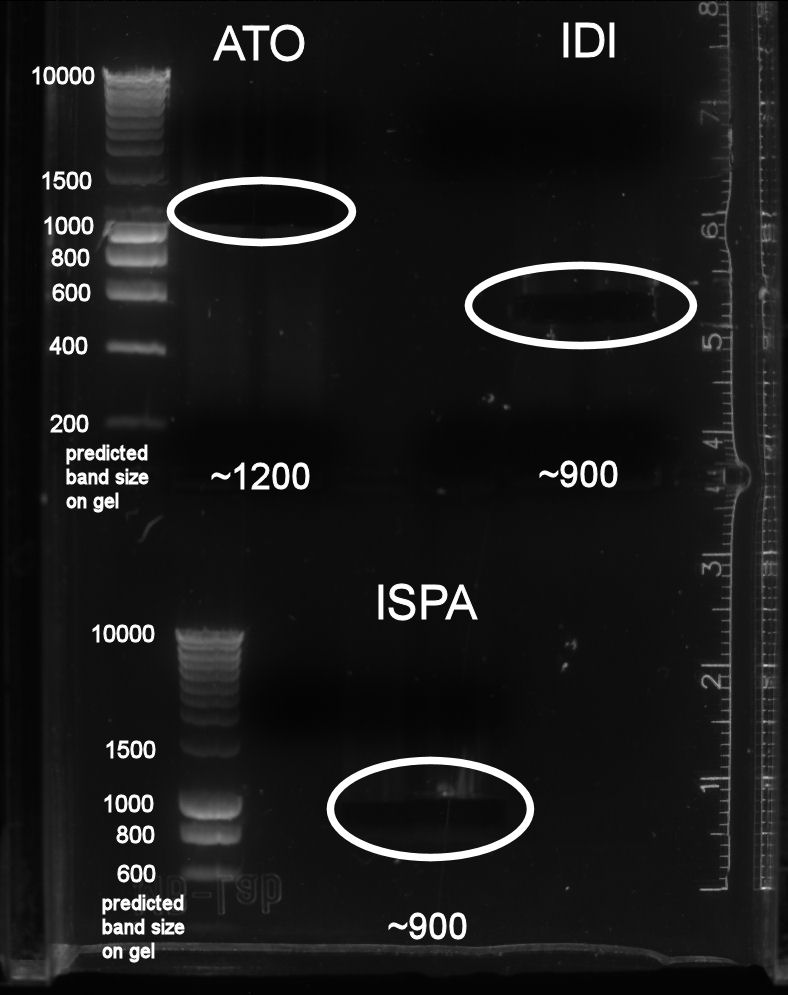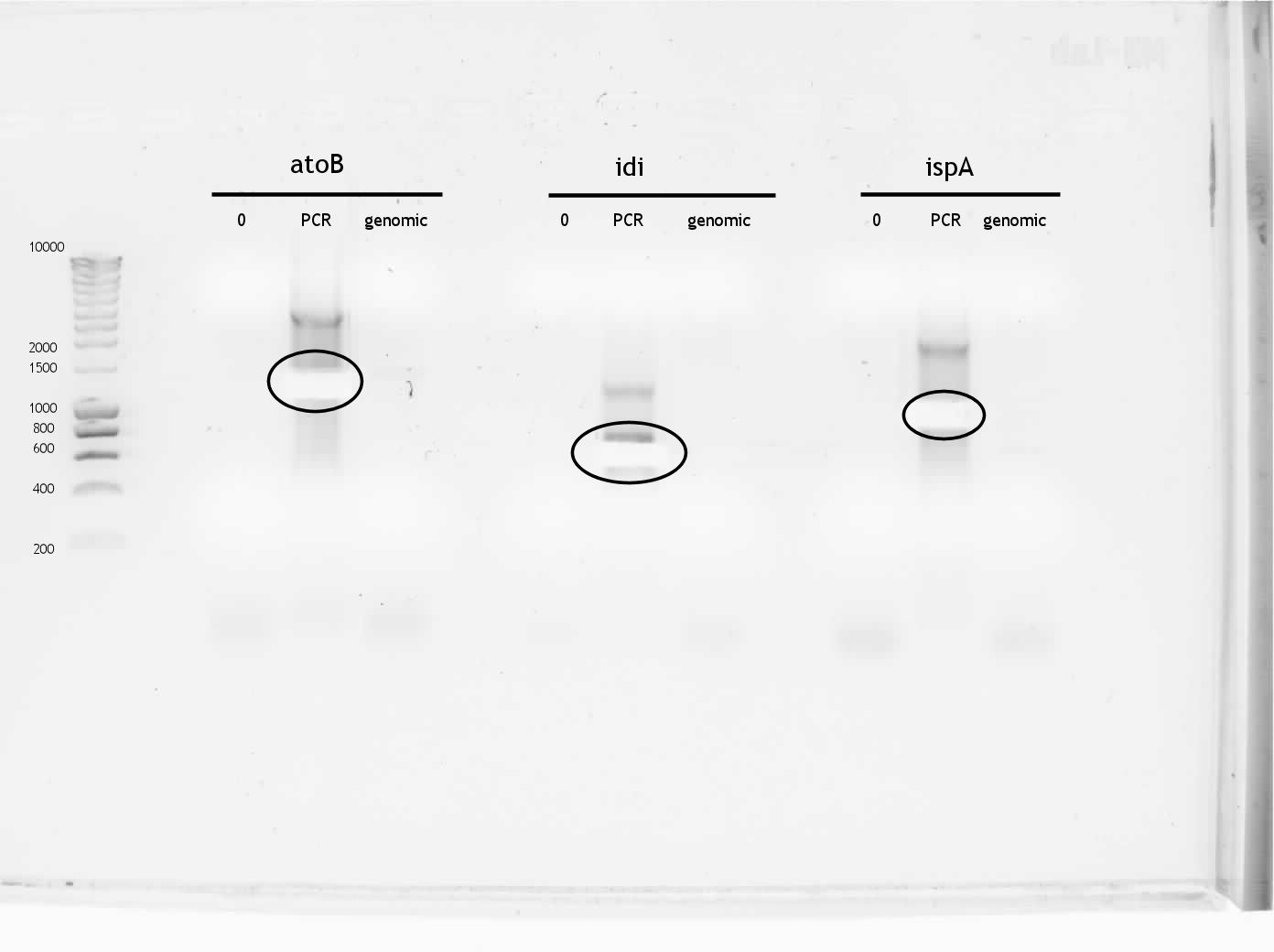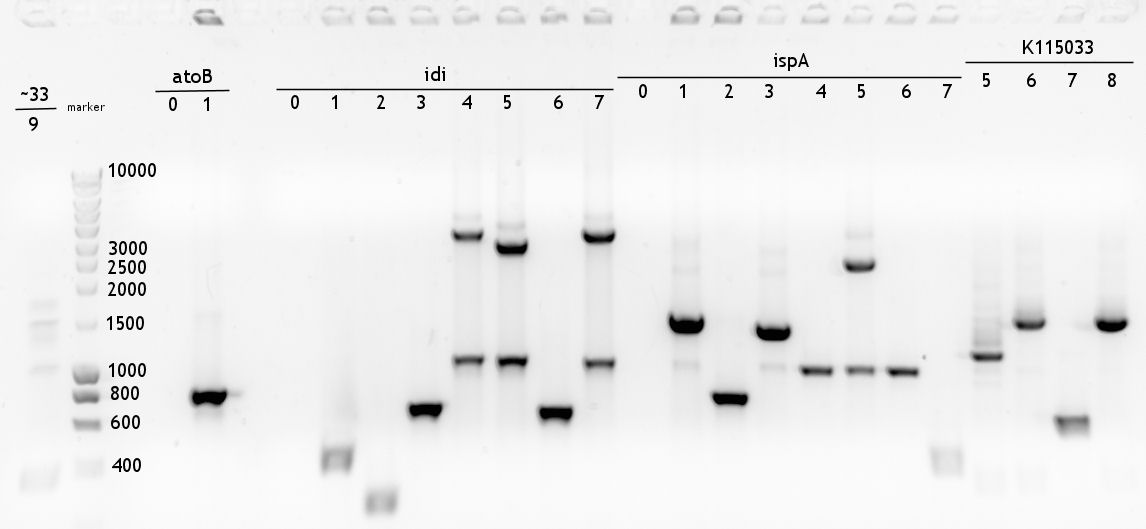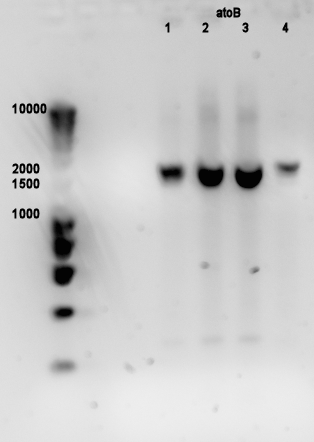Team:TUDelft/Color testing
From 2008.igem.org
Contents |
Color pathway testing
Correct genes testing
The first indication of whether obtaining of the genes was a succes, is the correct size of DNA product on a gel. DNA sequencing will provide final certainty of the correct genes.
Correct activity testing
The ultimate proof of activity of the pathway would obviously be a colored Escherichia coli colony. However, to identify individual working enzymes, we'd need specific enzymatic assays. Furthermore this is useful, as some enzymatic assays could yield parameters for the modeling guys. Due to a lack of time, we've not looked any further into these assays.
Results
After we had our first succesful PCR on the genes of E. coli with Taq polymerase (Lab notebook August 19th) we tried to repeat it using Pfx polymerase, but this didn't work (Lab notebook September 4th). In the end we decided to repeat the experiment with Taq polymerase as the desired sequences were not very long, thus the chance for mutations due to the lack of proofreading of Taq polymerase was small. In the end the sequences will be verified through DNA sequencing. The gel of this PCR is displayed in figure 1. The S. cerevisiae genes showed no results.
Behind the gene names is mentioned what the size of the gene would be, idi is larger due to primer design.On these PCR products, we did a touchdown PCR with new primers, which were designed to add the biobrick prefix and suffix to the gene. This is described here. The results of this experiment are displayed in figure 2.
The touchdown PCR product was cut with appropiate restriction enzymes and ligated into a biobrick construction vector. The colony PCR of the transformants is displayed in figure 3 and figure 4. Behind the gene name the size + biobrick primer DNA (316 bp) is noted.
The miniprepped plasmids have been sent to Baseclear (NL) for sequencing and MIT for addition into the registry. For the sequences you can check our [http://openwetware.org/wiki/IGEM:TUDelft/2008 openwetware] page.
 "
"



